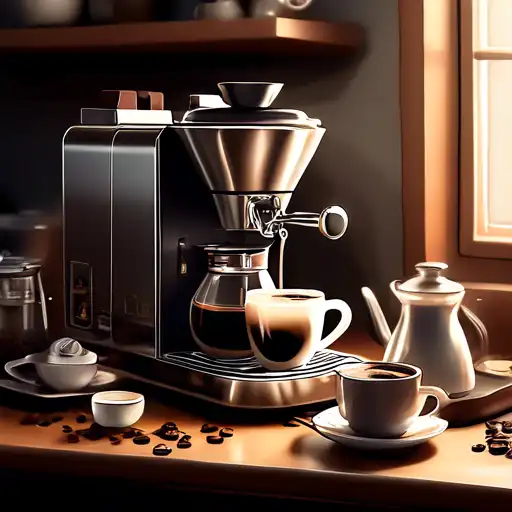Introduction to Homemade Coffee Mastery
There's nothing quite like the aroma of freshly brewed coffee in the morning. Mastering the art of making perfect coffee at home is not just about saving money; it's about crafting a cup that's tailored to your taste. This guide will walk you through the essentials of home coffee brewing, from selecting the right beans to the final pour.
Choosing the Right Coffee Beans
The foundation of a great cup of coffee is, unsurprisingly, the beans. Opt for high-quality, freshly roasted beans from a reputable source. Consider the roast level that suits your taste—light, medium, or dark—and don't shy away from experimenting with single-origin beans for unique flavors.
Grinding Your Coffee Beans
For the freshest taste, grind your beans just before brewing. The grind size should match your brewing method: fine for espresso, medium for drip coffee, and coarse for French press. Investing in a good quality burr grinder can make a significant difference in the consistency of your grind.
Water Quality and Temperature
Water makes up about 98% of your coffee, so its quality is paramount. Use filtered water to avoid any off-flavors. The ideal brewing temperature is between 195°F and 205°F. Too hot, and you risk burning the coffee; too cool, and you'll under-extract, leading to a weak cup.
Brewing Methods Explored
There are several methods to brew coffee at home, each offering a different taste profile. Here are a few popular ones:
- Drip Coffee Maker: Convenient and consistent, perfect for beginners.
- French Press: Offers a rich and full-bodied cup.
- AeroPress: Versatile and great for experimenting with different recipes.
- Espresso Machine: For those who love a strong, concentrated coffee.
Perfecting Your Coffee Ratio
The golden ratio for coffee is about 1 to 2 tablespoons of coffee per 6 ounces of water, but feel free to adjust based on your preference. Keeping a coffee journal can help you track what works best for you.
Maintaining Your Equipment
Regular cleaning of your coffee-making equipment is essential to prevent old oils and residues from affecting the taste of your coffee. Descale your machine and clean your grinder periodically to ensure the best flavor.
Experimenting with Flavors
Once you've mastered the basics, don't be afraid to experiment. Try adding spices like cinnamon or cardamom to your grounds before brewing, or explore milk alternatives for a different texture and taste.
Conclusion: The Joy of Homemade Coffee
Making perfect coffee at home is an art that requires patience and practice, but the reward is a cup that's exactly to your liking. With the right tools, ingredients, and techniques, you can elevate your home coffee experience to rival that of your favorite café. For more tips on coffee brewing, check out our guide on coffee brewing methods.
